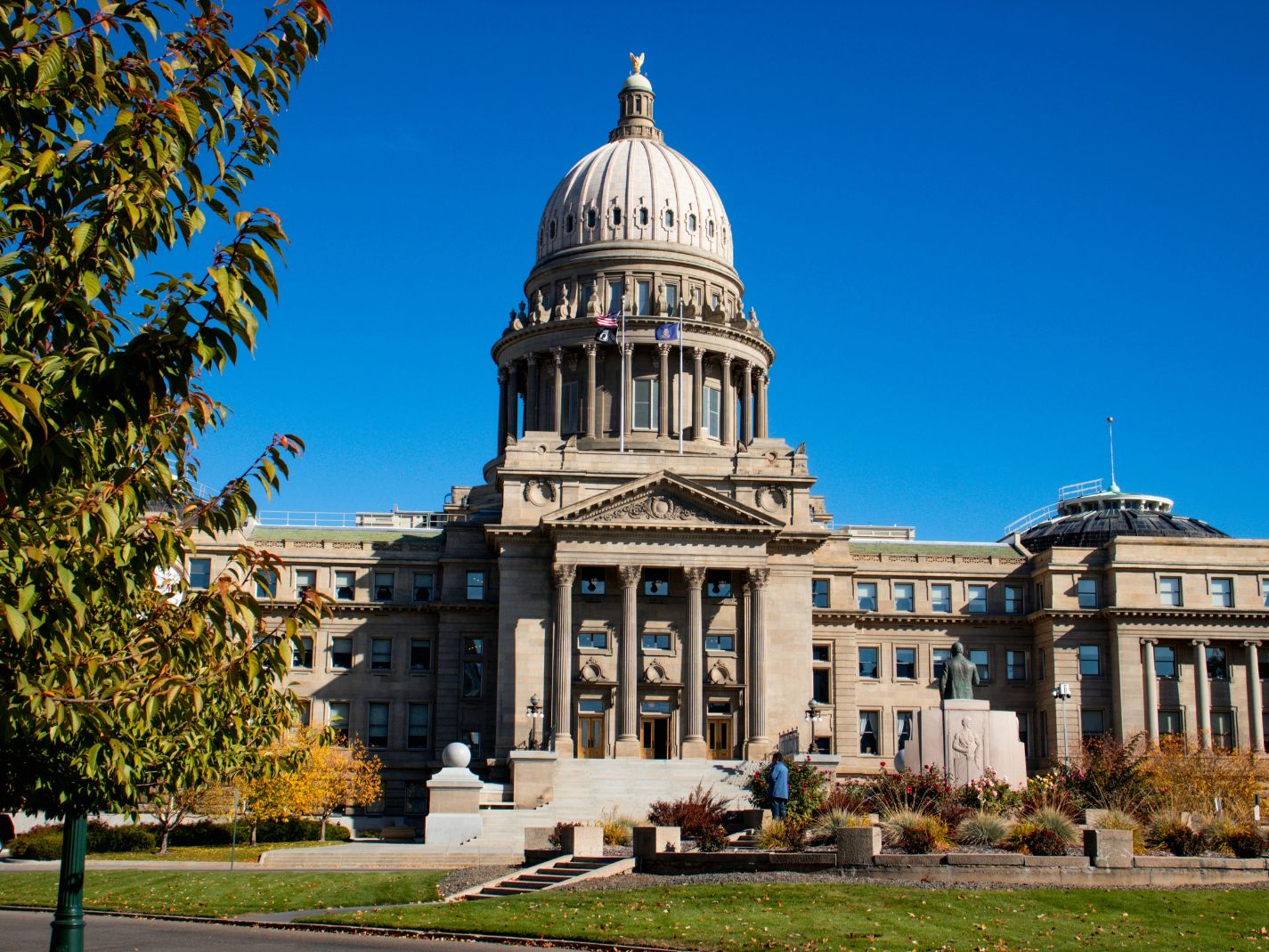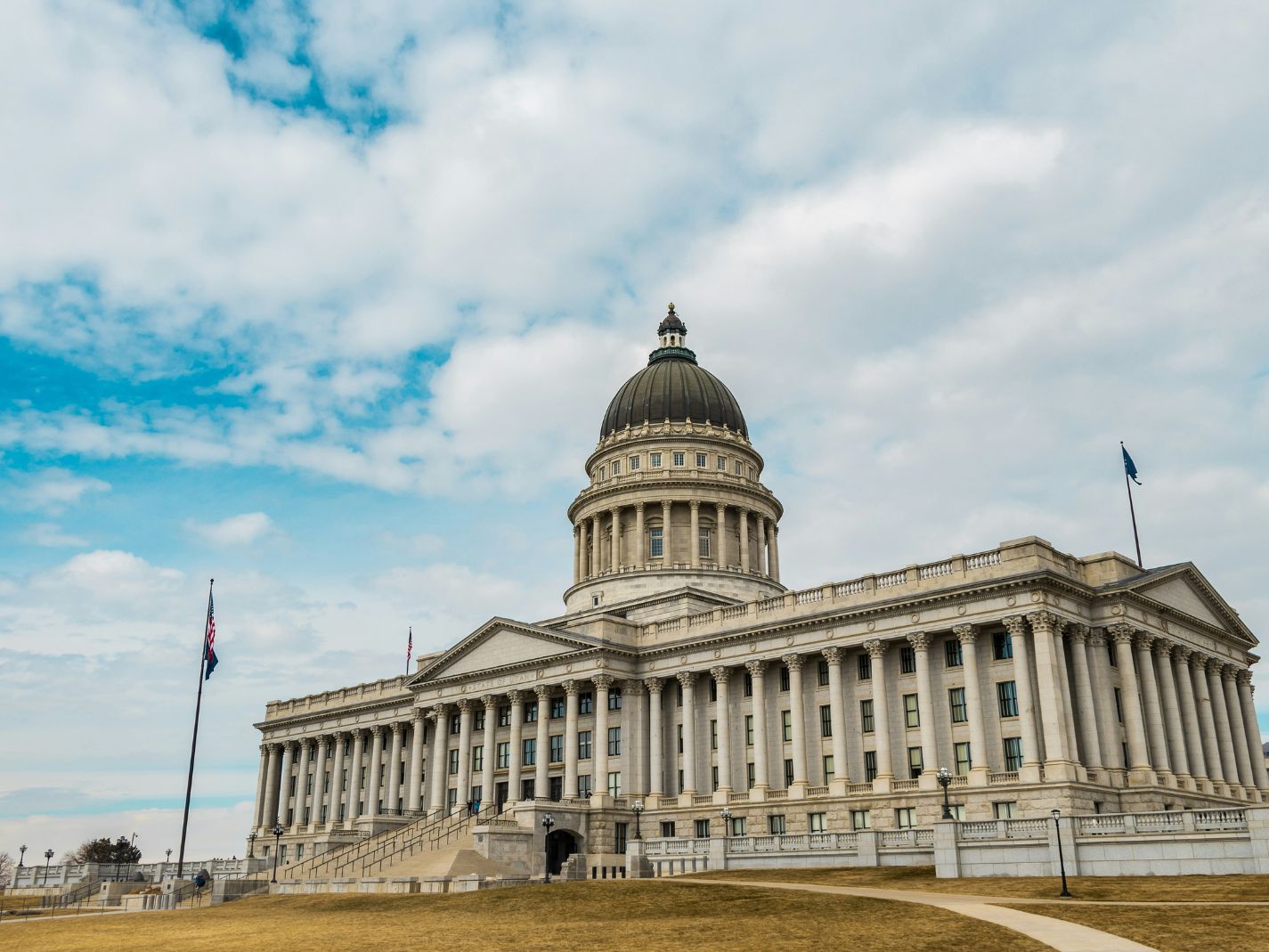Oklahoma Adopts Social Studies Standards Informed by American Birthright
The National Association of Scholars (NAS) and the Civics Alliance are delighted that Oklahoma has adopted social studies standards informed by American Birthright: The Civics Alliance’s Model K-12 State Standards and History of Communism: Model State Academic Standards for Social Studies (jointly created by the Civics Alliance and NAS). We believe that the Oklahoma State Department of Education (OSDE) has done excellent work to improve Oklahoma’s social studies standards, which are significantly strengthened from the previous version. Secretary Ryan Walters has accomplished a substantial service for Oklahoma citizens by championing these standards.
OSDE, alas, does retain a framework which itself is ultimately informed by the National Council for the Social Studies’ counterproductive College, Career, and Civic Life (C3) Framework for Social Studies State Standards. We regret that OSDE has, for the present, foregone an opportunity to implement the best possible social studies standards. But the social studies standards do include very substantial improvements, which NAS described in detail in a January comment. The revised social studies standards, generally, increase detailed content knowledge, strengthen knowledge of Western Civilization and American history, and strengthen coverage of the histories and the nature of America’s ideals and institutions of liberty, faith, civic virtue, and self-government—as well as of the challenges posed to these ideals and institutions by tyrannies such as Nazism and Communism. They include dedicated high school electives in Ancient and Medieval World History and History of 20th Century Totalitarianism.
While we also urge Oklahoma to make even greater reforms in its next round of social studies revision, the changes it has made are excellent and far-reaching. OSDE’s next challenge will be to make sure that it reforms its social studies curriculum frameworks and other materials to complement the reforms carried out in the standards. We encourage Oklahoma citizens and policymakers to urge OSDE to reform these other materials.
We urge OSDE to carry out more reforms—and we are delighted with the excellent work OSDE has done overall with its revisions to its social studies standards. Oklahoma has done an exceptional amount to improve these academic content standards—and therefore to improve the education of Oklahoma’s students. We are extraordinarily pleased that our American Birthright and Model History of Communism Standards could be useful to Secretary Ryan Walters, and to everyone at the Oklahoma State Department of Education, as they made these excellent revisions.
Oklahoma’s education reform work is not done. Nevertheless, it has positioned itself to accomplish the pioneering science and social studies reform of this generation.
Nebraska Social Studies Standards Public Comment
The National Association of Scholars and the Civics Alliance were asked by Nebraska citizens to comment on the Department of Education’s current Nebraska Social Studies Standards (2019), to help inform the Department as it begins the process of reviewing and revising these standards. We concluded that the Standards require complete revision—and that this improvement should be conducted by recruiting an independent commission to redraft new social studies standards. We sent the following letter to Brian L. Maher, Commissioner, Nebraska Department of Education. Nebraska education reformers should urge their elected officials, and the Nebraska Department of Education, to follow the recommendations of our letter.
Golden Thread Western Civilization Textbook Approaching Publication
Encounter Books’ new Western civilization textbook, The Golden Thread, is approaching publication! Volume I (by James Hankins) should be published in August and Volume II (by Allen Guelzo) in October. I’ve had a chance to look at an advance copy of Volume I, and it is very impressive—well-written, of course, but also beautifully designed, with a wealth of images and maps that supplement the text rather than replacing it. The Golden Thread, along with Land of Hopefor U.S. history, makes a great pair of high school social studies textbooks. Indeed, they would be very good for many introductory college courses.
Textbooks are a key portion of education reform—even if many teachers are abandoning textbooks all together, replacing them with free modular resources on the internet. State law cannot create a textbook: it has to be written, and it has to be published. Encounter Books is engaging in a necessary, difficult, and noble task—to commission and create a Western civilization textbook, and then to work through the bureaucratic state textbook adoption processes, to make sure that it’s possible for public schools to order The Golden Thread. Encounter Books should be imitated in this campaign—and supported.
Iowa Education Reform Legislation: Partly Done
Iowa’s legislature has passed two strong higher education reform bills: House File 295, which makes it possible for Iowa to switch accreditors and which prohibits accreditors from requiring Iowa public universities to break state law; and House File 437, which would establish an autonomous Center for Intellectual Freedom at the University of Iowa. Both bills align with our principles, and House File 437 has been informed by our model School of Intellectual Freedom Act. Iowa Governor Kim Reynolds has signed House File 295 into law, but has not yet signed House File 437. If she does, Iowa will have enacted very solid higher education reform work this year. Stay tuned! We hope in our next Resolute to be able to tell you that both bills are now law.
AFPI Releases Report on Academic Rigor at the University of Texas at Austin
Christopher Schorr at the America First Policy Institute (AFPI) has published a very good new research report, Are the ‘Studies’ Worth Studying? A Cross-department Comparison of Academic Rigor at The University of Texas at Austin. Schorr establishes that the “studies” programs aren’t just politicized, they’re also grade-inflated and un-rigorous. This is an important point in itself, and also for making political arguments: it provides a quantitative metric (class grades) by which to assess whether the studies disciplines provide any benefit for the taxpayer. Education reformers should take note of Schorr’s conclusions, and also of his innovative approach to higher education reform.
Arkansas Passes Core Curriculum Bill
Arkansas has now passed House Bill 1696 (HB 1696), which will transform Arkansas’ public university systems general education requirements into a core curriculum. It also strengthens Arkansas’ existing American History and Government general education requirement by specifying that it will include “Instruction in the essentials of the United States Constitution” and “The study of American institutions and ideals.”
HB 1696 works in the spirit of the Civics Alliance’s model legislation, both the Core Curriculum Act (which reforms general education requirements but preserves a distribution requirement structure) and the General Education Act (which transforms general education requirements into a core curriculum). It is a parallel reform effort that works toward the same end—to restore a rigorous, depoliticized, shared education in America’s public universities.
We suggest that Arkansas policymakers who wish to deepen education reform might follow up on HB 1696 in future legislative sessions with legislation informed by one or both of our model bills. But this suggestion does not diminish our support for HB 1696. It has been well crafted by state legislators and we are sure that Governor Huckabee’s administration will make sure that the Division of Higher Education follows legislative intent.
A Useful Great Books List
Purdue University of Indiana’s Cornerstone Integrated Liberal Arts program provides two lists of (in effect) Great Books: Antiquity to Modernity and Modernity to Present. The first is quite good; the second pays a tithe to the woke. Education reformers should look at these lists for their own sake—and also because they provide information about how Great Books-minded higher education programs are carrying out their remit.
Federal Initiatives
It sure would change the education landscape if the U.S. Department of Education were eliminated, as promised! Everything we do—well, we do focus on state initiatives, and what happens at the federal level won’t change the need to work on the state level. But of course federal regulations and money provide a very important context for what happens at the states and the school districts. But at this point, we can’t anticipate precisely what the future is for federal education policy. We are trying to be ready for any eventuality.
New Civics Alliance Model Legislation
Politics Out of Schools Act: The Politics Out of Schools Act discourages politically motivated mass student walkouts in K-12 public schools.
History of Communism Taskforce Act: The History of Communism Taskforce Act creates a social studies task force, appointed by the governor and the state legislature, to draft social studies standards based on History of Communism Model State Standards.
In-State Enrollment Act: The In-State Enrollment Act caps out-of-state enrollment for entering freshmen at 18% for each public university campus
China Gift Act: The China Gift Act bans public universities from accepting gifts from the People’s Republic of China.
Professional Association Liberty Act: The Professional Association Liberty Act prohibits all state funding or support for any professional association that requires commitments to discriminatory concepts, imposes censorship, or requires abridgement of First Amendment rights.
Program Review Act: The Program Review Act establishes a Task Force to review all undergraduate and graduate academic programs offered at a public university system so that policymakers will know which academic programs and departments should be discontinued and defunded.
Testimony
Would you like to be on a list of people prepared to give testimony in favor of a state bill to reform civics education? If so, please get in touch with me: randall@nas.org. We need people ready to testify in all 50 states—ideally, with some personal tie to the education system, but testimony from any citizen would be good.
Civics Alliance Now Has Eleven State Affiliates
The Civics Alliance is building a network of state affiliates—groups dedicated to removing action civics in their states, whom we will list on our website. We now have eleven affiliates, in Alabama, Colorado, Georgia, Idaho, Mississippi, Missouri, Nebraska, Ohio, Pennsylvania, Rhode Island, and Texas. If you would like to form such an organization, or suggest an existing organization, please get in touch with David Randall (randall@nas.org).
Monthly American Birthright Zoom Meeting
The Civics Alliance will have its monthly Zoom session devoted to social studies standards reform on Monday, June 16, at 2:00 PM Eastern Time. Please email randall@nas.org if you would like to join these monthly Zoom meetings.
Social Studies Standards Revision Schedule
2025/Current: Arizona, Kentucky, Montana, Nebraska, Ohio, Texas, West Virginia, Wisconsin, Wyoming
2026: Colorado, Maryland, North Dakota, South Carolina
2027: Hawaii, Kansas
2029: Louisiana
2030: Minnesota
2031: Illinois
No Revision Currently Scheduled: California, Delaware, Florida, Georgia, Iowa, Massachusetts, Michigan, Missouri, New Hampshire, New Mexico, New York, North Carolina, Pennsylvania, South Dakota, Tennessee, Utah, Vermont, Virginia, Washington.
Please email David Randall (randall@nas.org) if you are interested in further information about your state’s social studies revision process, and what you can do to participate.
Continuing Priorities: Federal Legislation
At the federal level, the Civics Secures Democracy Act threatens to impose action civics nationwide.
The Civics Bill Tracker
Civics Alliance supporters may now use the Civics Bill Tracker to track all proposed federal and state legislation related to civics.
Public Action
We encourage Civics Alliance supporters to inform the public and policymakers about the stakes and consequences of action civics bills.
David Randall is the Executive Director of the Civics Alliance and Director of Research at the National Association of Scholars
Photo by lovelyday12 on Adobe Stock



